At the Intersection of Culture and Socio-Economic Development
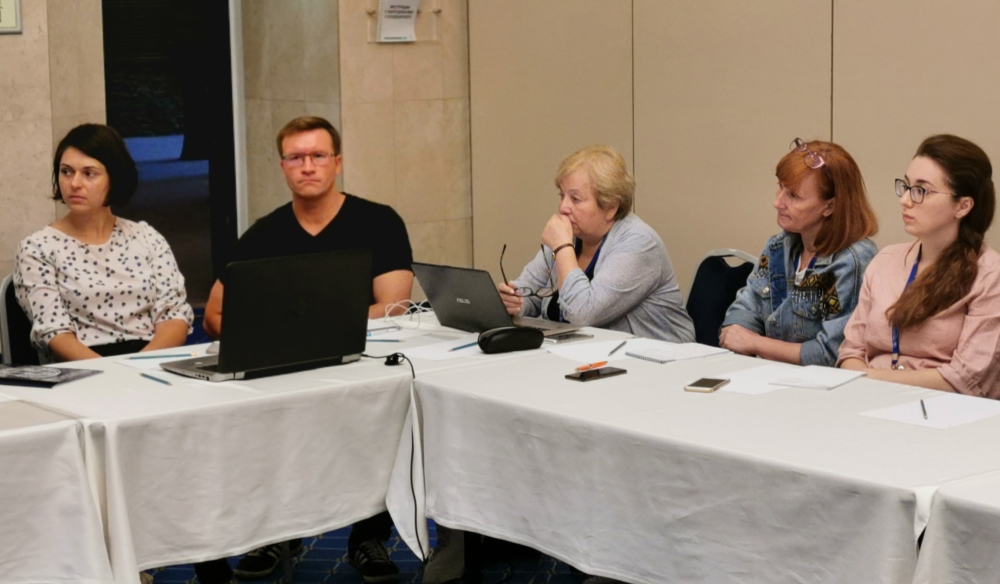
In its capacity as a venue for integrating Russian and international cross-cultural psychologists, the HSE Centre for Sociocultural Research has been researching the values of people in post-Soviet states and other countries for over a decade. Nadezhda Lebedeva, Director of the Centre and Professor of the Faculty of Social Sciences, speaks about the leading world researchers working at the Centre, the transmission of values among adolescents and their psychological well-being, and the connection between creativity and the acceptance of cultural differences.

Nadezhda Lebedeva
Director, Centre for Sociocultural Research
How was the Centre for Sociocultural Research created and how has it attracted leading researchers?
Why do some states flourish, while others remain economically underdeveloped? Does culture help or hinder social development? And if it does stand in the way of development, can culture be measured? These questions have long interested researchers in Russia and abroad. In their research, the American sociologists Samuel Phillips Huntington and Lawrence Harrison, as well as the Russian economist Evgeny Yasin, have acknowledged the significant role of culture in economic processes. Evgeny Yasin and I were united by common interests.
Back then, I was heading the Sector of Cross-Cultural Psychology at the Institute of Ethnology and Anthropology of the Russian Academy of Sciences (RAS). My research was concerned with changes in Russian people’s values during the social and economic reforms of the 1990s. In 2005, Evgeny Yasin invited me to discuss the results of my research. The discussion gave birth to the idea of conducting full-scale empirical research into the connection between the core values of Russian people and their socio-economic attitudes.
The research resulted in Values of Culture and Development of Society, a monograph I wrote with Alexander Tatarko, who is now Deputy Director of the Centre. We presented it at HSE University in front of Russian researchers and public figures. After completing the project in 2006, I was given the opportunity to establish the Laboratory for Sociocultural Research at HSE University. This was the first milestone in the development of social and cross-cultural psychology in HSE University at the international level.
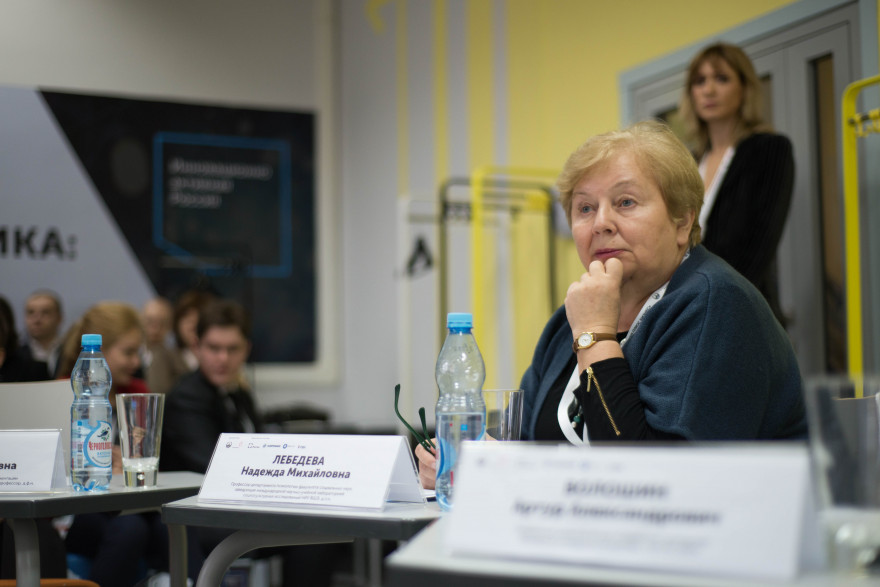
Our initial team was very small—only four people. We had the Head of the Centre and three young researchers: an undergraduate, a postgraduate, and a newly minted Candidate of Science. Before joining HSE University, most of them worked at the Institute of Ethnology and Anthropology at the RAS, where they conducted research into values, cultural interaction, and the adaptation of migrants. They also developed and taught training courses on intercultural interactions. The topics we continued to focus on turned out to be quite attractive to a young audience interested in social and cross-cultural psychology. We were also greatly motivated to work by HSE University’s encouragement and support for international cooperation. This enabled us to strengthen and expand our existing relationships with the world-leading researchers at the International Association for Cross-Cultural Psychology (IACCP). Moreover, this helped us organize and run international conferences and joint research projects.
Within four years, by 2010, the Laboratory’s staff had grown to almost three times its previous size. We were doing a lot of research and published monographs and articles (predominantly for Russian journals at first). Our young researchers received grants from the Russian Humanitarian Science Foundation (RHSF) and the Russian Foundation for Basic Research (RFBR). The Laboratory broke through to the international stage thanks to the support of HSE management and the HSE Development Programme, which involved the creation of international laboratories run by leading foreign researchers. In 2011, the programme allowed us to establish the International Research Laboratory for Sociocultural Research.
Another great impetus behind the establishment of the international laboratory was the Second International ‘Culture Matters’ Congress at HSE University. Founded by Evgeny Yasin, the Congress hosted world-renowned researchers and creators of their own value measurement systems such as Geert Hofstede, Ronald Franklin Inglehart, and Shalom H. Schwartz. Other attendees included well-known researchers and public figures working at the intersection of culture and socio-economic development.
The Congress was a success and gave rise to a host of international laboratories at the university, including the Laboratory for Sociocultural Research. The first co-leaders of this laboratory were Shalom H. Schwartz, world-renowned creator of the Theory of Basic Human Values (Hebrew University, Israel), and Peter Schmidt, a leading methodologist in the field of social sciences (Giessen University, Germany). For Russian cross-cultural psychologists, it was a breath of fresh air, a great impetus for development, and an invaluable opportunity to work at the forefront of research alongside world-class researchers.
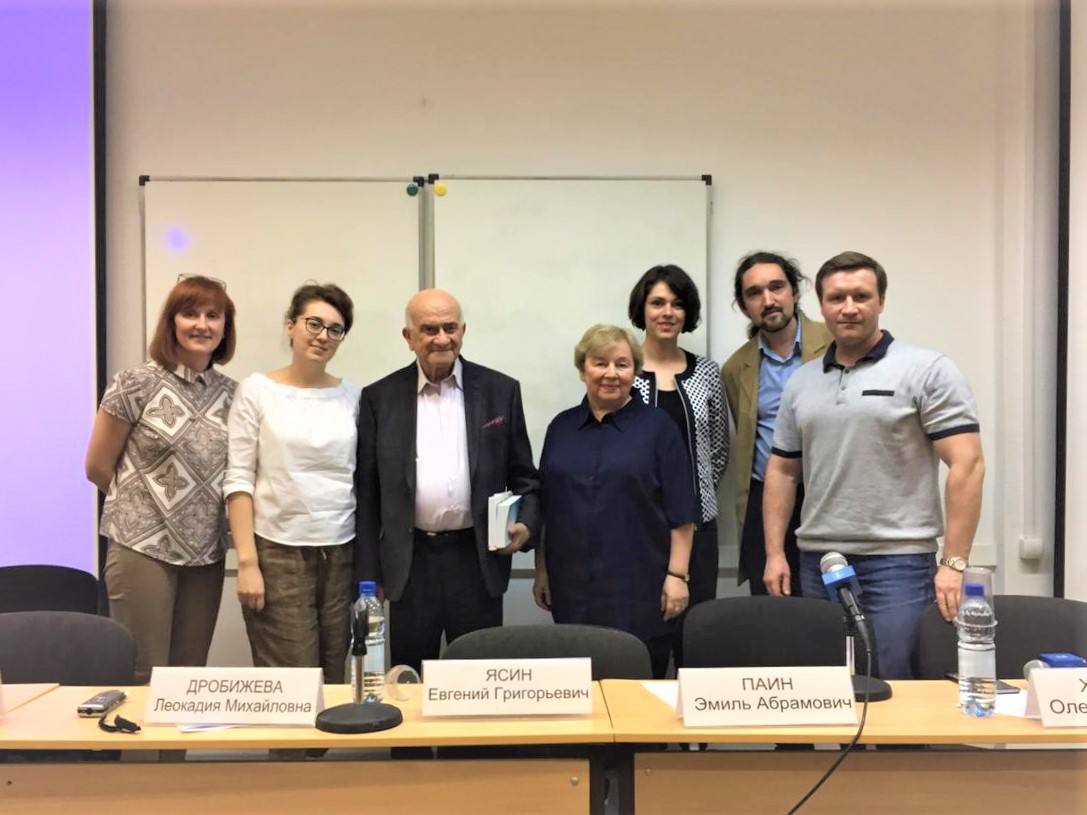
The International Laboratory gradually expanded the scope of its research and employed more and more people. In autumn 2019, it became the Centre for Sociocultural Research. In later years, the laboratory collaborated with other major figures in cross-cultural psychology such as John Berry (creator of Acculturation Theory), Seger Breugelmans (co-author of a widely known textbook on cross-cultural psychology), and, currently, world-recognized social and cross-cultural psychologist Klaus Boehnke (Jacobs University, Germany).
A number of renowned experts in the fields of social, cross-cultural, economic, and organizational psychology have made their own unique contributions to the development of the laboratory at different times. Among them are Marcel Zeelenberg, Yoshihisa Kashima, Michele Gelfand, Ron Fisher, Colin Ward, Dina Birman, Çiğdem Kağıtçıbaşı, Márta Fülöp, Rolf van Dick, Icek Ajzen, Saba Safdar, and the late Fons van de Vijver.
It is hard to overstate Fons van de Vijver’s contribution to the development of the future Centre for Sociocultural Research. Fons was an open-minded, inquisitive and creative person who was always willing to help others. He worked with other researchers at the Centre to co-author numerous interesting articles for leading foreign journals. Four of the scholars mentioned above—Berry, Schwartz, van de Vijver, and Boehnke—also headed the International Association for Cross-Cultural Psychology (IACCP) at various points.
What areas of research do you focus on?
Most of our research focuses on social and cross-cultural psychology. We examine social and psychological phenomena and processes from a cross-cultural perspective. This approach is important, as phenomena found in one culture may not necessarily appear in others. Cultures that appear to share a number of basic values may have fundamentally different value hierarchies. This is also directly related to differences in people’s attitudes and behaviours. However, values are just one area of cross-cultural psychology that our Centre’s researchers are interested in. We also do a lot of research into intercultural interaction, the adaptation of migrants and host majorities, as well as the formation, transmission, and evolution of social identities.
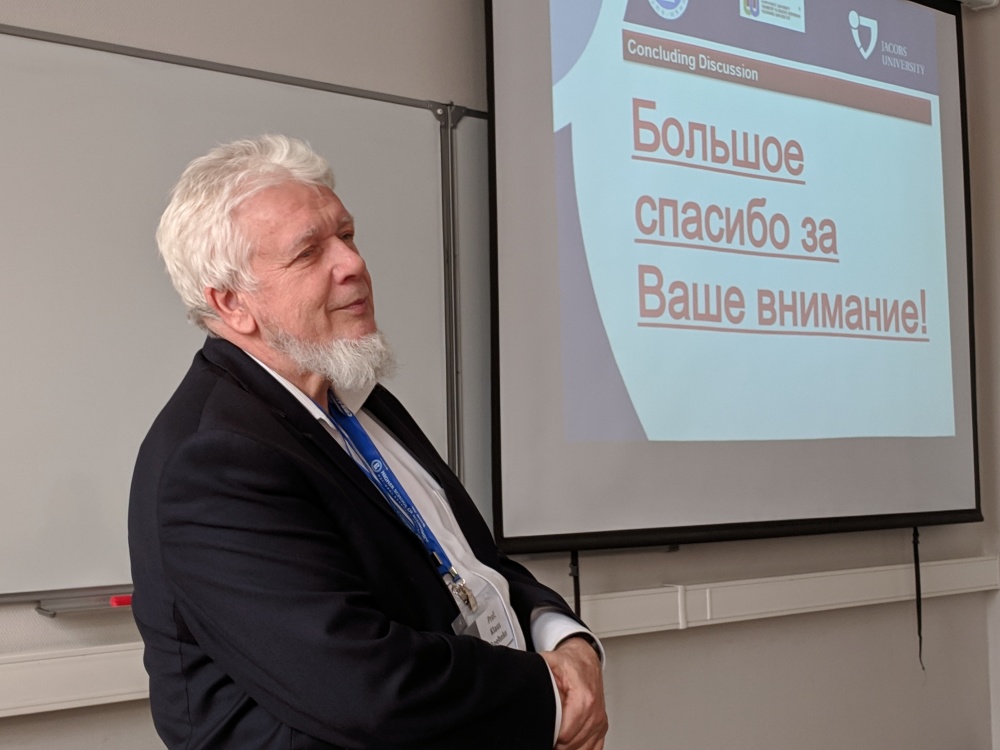
The Centre’s staff have developed and tested a research design aimed at studying the similarities, differences, and transmission of values in three generations of families belonging to either minority or majority ethnic groups in various sociocultural contexts (research was conducted in Latvia, Lithuania, Estonia, Azerbaijan, Tajikistan, Kyrgyzstan, and Russian regions). This research revealed that the self-transcendent values (those that extend beyond the individual) that lie at the core of altruistic behaviour are very important to Russians in all sociocultural contexts. Moreover, all generations within a Russian family seem to demonstrate this value equally well in any foreign cultural environment, compared to the dominant ethnic groups.
As an ethnic minority living in a more modernized sociocultural context, eg in Latvia, Russians differ a great deal from both Russians living in other regions and representatives of the dominant ethnic group in terms of their openness to change (which is much stronger) and conservation (which is much weaker). Russians living in a more traditional sociocultural context, for instance, in the North Caucasus republics, demonstrate values more similar to those of the dominant ethnic groups than to Russians from central Russian regions. This suggests a stability of basic Russian values that comprise the core of their identity and a flexibility in the values important for adaptation in different sociocultural conditions.
As for the transmission of values, one very interesting finding is that the psychological well-being of adolescents from both ethnic minorities and ethnic majorities relies on the transmission of the values least important to young people (for instance, stimulation, power/resources, conformism/rules). Conversely, the transmission of the values most important to adolescents (including self-direction, benevolence/caring, benevolence/dependability) is negatively correlated with their psychological well-being.
It was also found that intergenerational transmission of values within the Russian ethnic minority in post-Soviet countries raises life satisfaction among adolescents, and that grandparents play a more significant role in this transmission than parents.
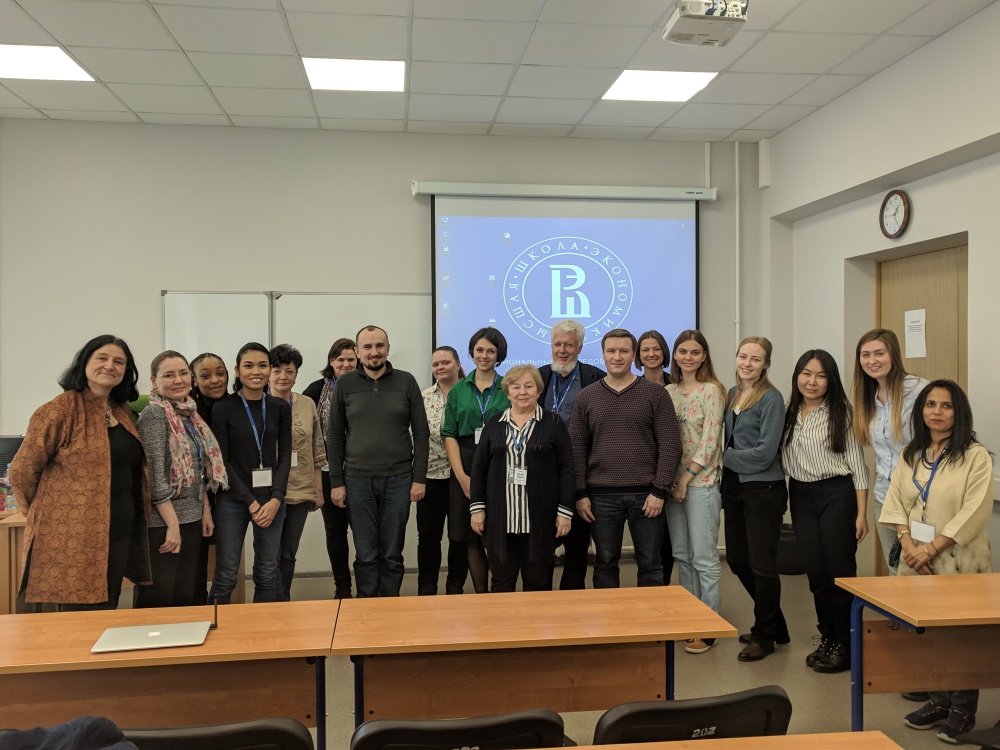
Values have also helped us understand what motivates positive attitudes towards exclusive and inclusive identities, monocultural and intercultural contacts, behavioural strategies during intercultural conflicts, intercultural assumptions and charitable behaviours.
Values are also predictors of creative performance and attitudes to innovations in Russia.
A representative survey conducted in CFD 1 and NCFD 2 showed that the values of openness to change have a more positive influence on all forms of creativity in the Russian Central District than in the North Caucasus District. Conversely, the values of conservation have a more negative effect on all forms of creative performance in the North Caucasus than in Central Russia. These differences in the effects of values are particularly noticeable in the fields of management creativity and the visual and applied arts.
The range of research into types of economic behaviour and determinants such as climate has expanded. Social capital in its various forms is also being studied more extensively. We conduct this research at the societal level, from a macropsychology perspective. In particular, we analyze how social capital is formed in our multicultural society and how it is affected by migration processes and a society’s migration policy. We use approaches developed in the field of environmental psychology to examine the relationship between living environment and various social phenomena and processes. One study has demonstrated how the economy and climate in Russian regions are connected to negative phenomena such as corruption and crime.
We study intercultural relations not only in terms of mutual adaptation between migrants and the host nation, but also by testing hypotheses of intercultural relations, social identities, stereotypes, prejudices, conflict behaviour, intercultural ideologies, and creativity in multicultural environments. The Centre is currently employing intergenerational and cross-cultural analysis to examine the contributing factors and psychological consequences of mutual acculturation and adaptation in ethno-cultural groups with different group statuses.
The Centre conducts these studies in multicultural regions in Russia and in practically all post-Soviet countries. A key focus of these studies is to test hypotheses of intercultural relations. We use our findings to develop and analyze models of intercultural relations in post-Soviet countries (the ‘nation state’, ‘pragmatic’, and ‘post-conflict’ models). These models give us a clearer picture of the background of intercultural relations in a country or region and allow us to consider the prospects of further intercultural interaction within them. We closely examine the acculturation and psychological well-being of Russians living in post-Soviet countries and build acculturation profiles of Russians belonging to the Soviet and post-Soviet generations. We also identify and analyze the level of psychological comfort among Russians depending on post-Soviet country, generation, and acculturation profile.
1 Central Federal District
2 North Caucasian Federal District
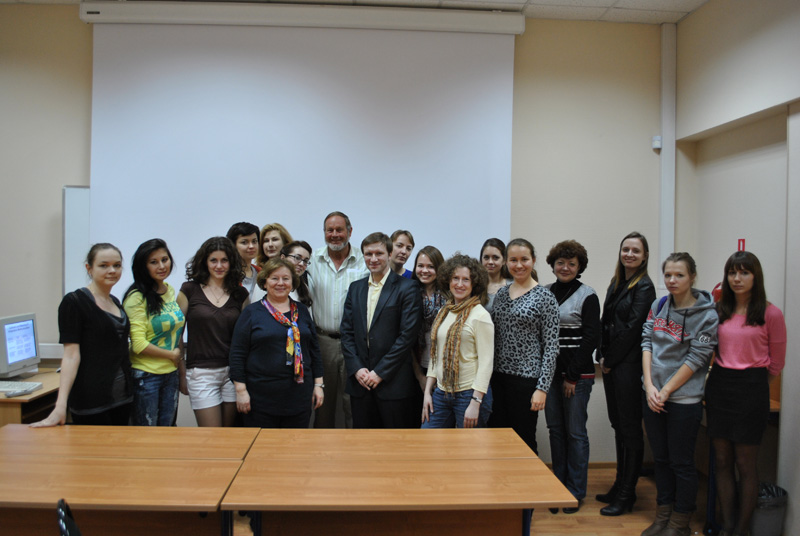
The Centre’s research on social identities has been reinvigorated by the increased emphasis on studying them in terms of their multiplicity, complexity, incompatibility, reactivity, and intergenerational transmission. For example, extensive research into social identities and intercultural attitudes in the North Caucasus shows that a national Russian identity is crucial for the preservation of interethnic peace among all groups, while a high level of republican and regional identities is crucial for the integration of minorities (particularly Russians) into the region. The loss of identity among indigenous peoples in the North Caucasus has been found to be a destructive factor in interethnic relations in Russia. Fortunately, this is not widespread at the moment. Studies devoted to stereotypes of Russians have produced rather curious results. We have used Fiske's model to create a map of the content of ethnic stereotypes in Russia to show how the Russian ethnic majority evaluates other ethnic groups in the country (in terms of a categorical grid of warmth and competence).
The Centre is actively studying the role played by values and the context of interaction in determining the choice of behavioural strategy in intercultural conflicts from a cross-border comparative perspective. We devote a lot of attention to analyzing the role of intergroup ideologies (assimilationism, ethnic colour-blindness, multiculturalism) amid growing ethnic prejudice.
Creativity is another important field within intercultural relations—in particular, investigating the role played by intercultural contacts and cross-cultural competence in the creativity of younger generations.
We have discovered that creatively inclined Russian students are characterized by their recognition and acceptance of cultural differences, the importance of cross-cultural competence, their own initiative, and the need for foreigners to preserve their cultural uniqueness. Russian students who are less creative are more likely to perceive international students as threats, competitors, or hindrances. Such students also tend to deny the existence or importance of cultural differences and show less understanding of necessary cross-cultural competencies.
The topic of intercultural education examines teachers' perceived difficulties regarding cultural diversity in schools due to the characteristics of migrant children as a specific student group. The field also analyzes pedagogical practices developed by teachers (ensuring equality, drawing from migrant children's culture as a resource, emphasizing a lack of differences, taking an individual approach, and conflict mediation).
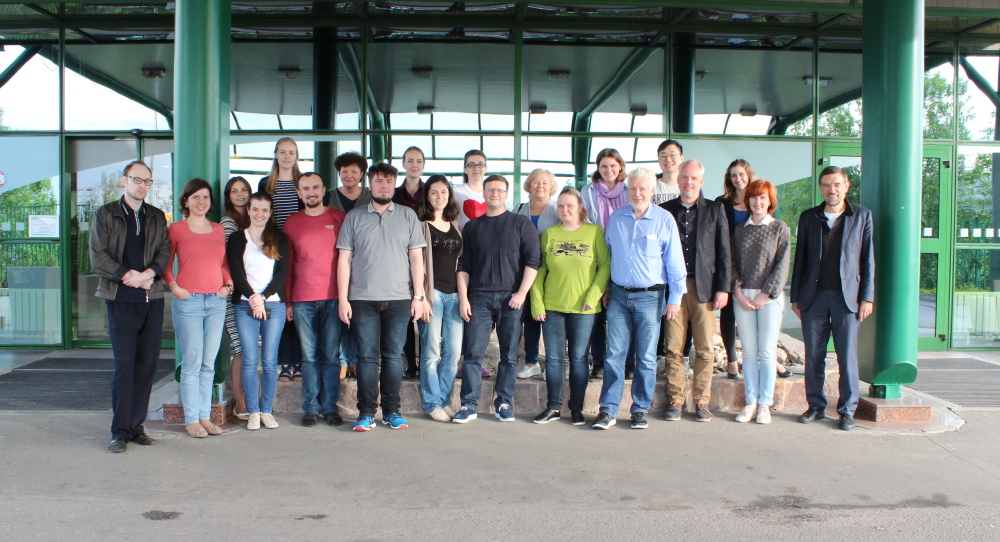
Recent research has focused on pressing contemporary issues such as corruption, poverty, social cohesion, the digitalization of society, social aspects of the pandemic and more. We have studied how the basic values of Russians and residents of other countries (France, Latvia, Germany, and Ghana) affect tolerance of corruption and how the climate and level of economic development in Russian regions are related to the incidence of corruption and crime. Poverty is another area of interest to us. In particular, we have looked at how perceptions of the causes of poverty are related to the willingness of Russians to help the poor. We found that if people believe that poverty has been caused by external circumstances, they are more willing to help the poor than when they believe that a person has become poor as a result of their own actions. We also studied the values underlying the planned philanthropic behaviour of entrepreneurs, which are ‘self-overcoming’ and ‘self-affirmation’.
This indicates that entrepreneurs may be guided by altruistic motives while remaining aware of the benefits to themselves.
We also study values and social capital in various ways and at different levels. For example, we studied how the ethnic diversity of Russian regions and integration immigration policy are related to social capital at the societal (macro) level. At the individual (micro) level, we take a psychological approach to studying the different facets of individual social capital. For example, we studied how individual social capital helps migrants adapt to living in Russia, how it influences their desire to start their own businesses, and the extent to which it depends on the active use of information and communication technologies. More recently, our research has looked into the socio-psychological consequences of the pandemic, particularly the relationship between fear of contracting COVID-19 and various aspects of social capital.
Given the growing trend towards digitalization, the Centre is expanding its research on intercultural relations that occur online. In particular, we study how involvement in information and communication technologies (ICTs) and discrimination in online communications are related to ethno-political activism both online and offline, as well as to the psychological well-being of Russians and their intercultural attitudes. We found that in regions with high levels of multiculturalism, involvement in the use of ICT will increase attitudes toward ethnic intolerance. Accordingly, medium and low levels of multiculturalism produce the opposite effect: involvement in the use of ICT will contribute to a decrease in attitudes towards ethnic intolerance.
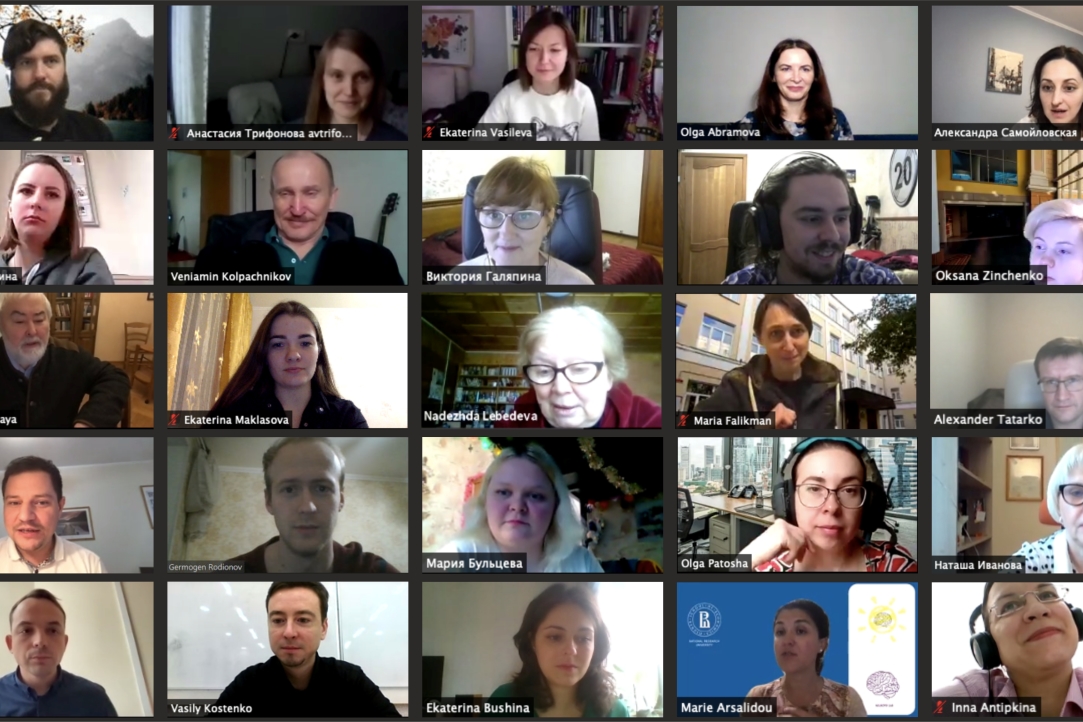
What are some of the most interesting insights the Centre has learned from its studies?
Our studies of cross-generational and cross-border similarities and differences in inclusive and exclusive social identities in post-Soviet countries (excluding Russia) show the diminishing importance of ethno-differentiating social identities (ethnic and religious) among younger generations of Russians living in post-Soviet countries. This could be due to the gradual assimilation of Russian ethnic minorities in post-Soviet countries, or may also be a result of generational differences. Social identities in post-Soviet countries—both among families in the Russian ethic minority and in the ethnic majority—are transmitted via the middle generation. Members of this generation define and transmit the importance of identities to their children. The identities of the older and younger generations in the Russian ethnic minority display ‘identification gaps’ not found in members of the ethnic majority. This finding suggests a gentler transformation of identities among the host nations of post-Soviet countries resulting from the collapse of the USSR compared to the Russian population of these countries.
Large-scale cross-cultural analysis of the acculturation and adaptation of Russian ethnic minorities in post-Soviet countries reveals that the most common acculturation profiles found in Russians residing in these countries are separation and biculturalism. The separation profile is more common—especially in members of the Soviet generation. Surprisingly, we found that in some countries, Russians demonstrating the separation profile are more content with life than those with the biculturalism (integration) profile. This finding calls for a deeper and closer analysis of the relevant context, as studies conducted in other countries have shown that integration is more often than not the most adaptive strategy of cross-cultural interaction.
Studies in the USA have found that ethnic diversity diminishes social capital. Our analysis of 25 Russian regions found no evidence that ethnic diversity adversely affects social capital. This is good news for a multi-cultural country like Russia.
Furthermore, our analysis of 22 European countries revealed that immigration policies that prioritize integration form certain values and beliefs in societies and thus have a positive effect on social capital—including level of trust. Also, legislative changes to the country’s integration policy improve quality of life not just for migrants, but also improve the subjective well-being of the ethnic majority.
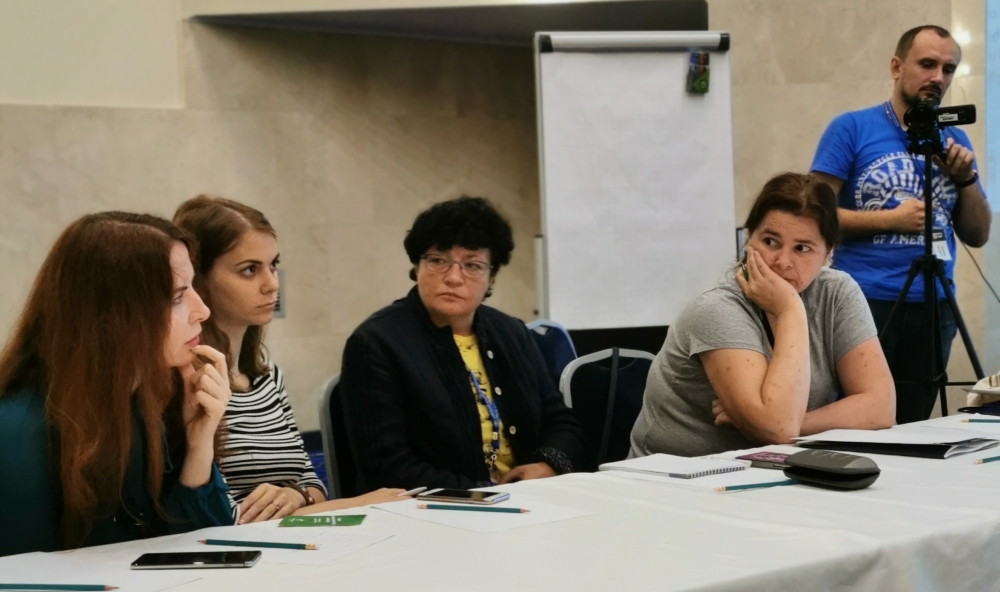
We also found no relationship between the value of ‘personal safety’ among Russians (as per Shalom H. Schwartz) and acceptance of corruption. This suggests that strict anti-corruption laws, which essentially appeal to safety values, are not likely to stop corruption. Such laws are insufficient, and other, finer, instruments may be more effective. In terms of the climatic and economic theory of culture, we discovered that while adverse climatic conditions associated with higher crime rates (including corruption) can be offset by economic development in some counties, this is not the case in Russia. Although Russian areas with adverse climates display higher rates of crime and corruption, the high GRP of such areas does nothing to offset these negative social phenomena. The relationship in these cases appears to be more complex, and so the climatic and economic theory of culture is not so readily applicable to Russia.
One noteworthy insight learned from studying the link between people’s values and their use of information and communication technologies was a positive link with values (as per Shalom H. Schwartz) such as achievement, power, stimulation, and hedonism, and a negative link with safety. Interestingly, we only observed these links in the older group (45–70 years old). The younger group (18–27 years old) demonstrated no link between their values and the use of information and communication technologies.
Younger generations are much more likely to be digital natives, and their values have no impact on their behaviour in this area. By contrast, older generations are less at home in the digital world, meaning that their behaviour towards technology is defined by their existing values.
Another interesting area of research concerns the development of the Migrant Integration Policy Index (MIPEX) for Russia and the longitudinal studies based on it. We worked with the Migration Policy Group (which is responsible for developing the Index methodology for all countries) to create an appropriate methodology and conduct studies in 2015, 2017, and 2019. The Centre was involved in the worldwide launch of MIPEX in November 2020, which included an online seminar comparing Russia’s MIPEX results to those of other countries. The studies revealed that Russia is seriously lagging behind European countries in areas such as fighting discrimination, access to education, and healthcare. However, Russia performs better than some countries in areas such as ease of obtaining citizenship or residency. Overall, Russia’s approach to integration is classified by MIPEX as ‘immigration without integration’.
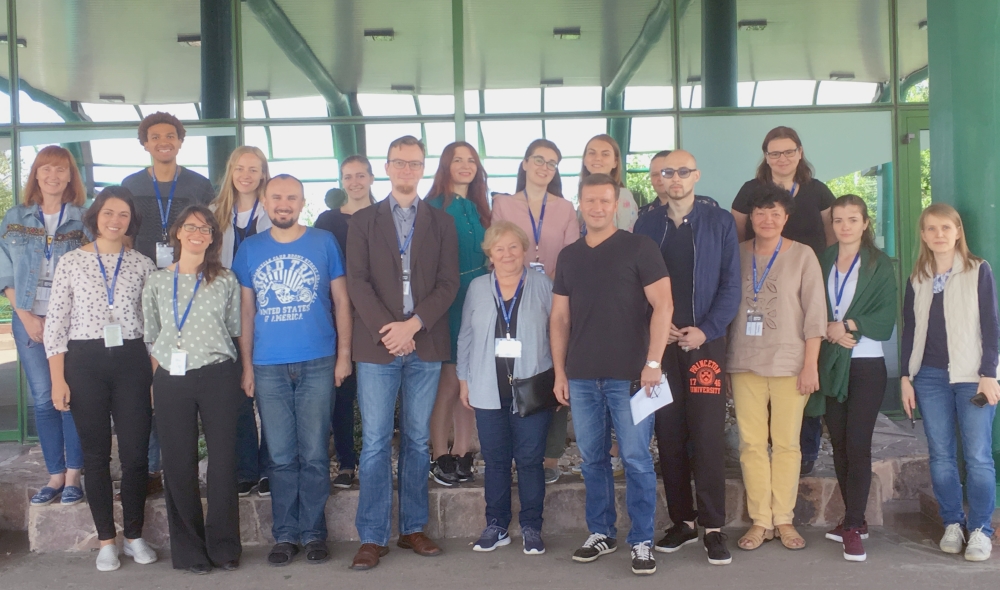
How did the decision to set up a Master’s programme in Applied Social Psychology come about? What makes the programme unique?
The Centre launched the Master’s programme in Applied Social Psychology in 2011 at the same time as the international laboratory. The programme was taught by HSE University staff and various visiting professors from abroad. Students particularly enjoyed the lectures by Shalom Swartz and John Berry. In 2014, the Master’s programme went international: all teaching was done in English, foreign students were able to apply, and a double-degree agreement was signed with Tilburg University in the Netherlands.
The English-language double-degree Master’s programme became an important staffing resource for the international laboratory—many alumni of the programme went on to pursue doctoral degrees and embarked on academic careers as research assistants at the laboratory. Naturally, some talented students opted for foreign postgraduate programmes. Our laboratory initiated a partnership agreement between HSE University and the Bremen International Graduate School of Social Sciences (BIGSSS). Four young scholars from our laboratory entered the postgraduate programme at the University of Bremen. As a result of this cooperation, we now have a research community in Germany that conducts joint studies with the laboratory.
The laboratory actively collaborates with regional Russian institutions such as Kuban State Technological University. How did that project come about?
The Centre has always supported new initiatives proposed by HSE University management to develop regional partnerships. One of the mirror laboratories set up after the summer 2020 contest is a joint project between the HSE Centre for Sociocultural Research and the Laboratory for Sociocultural Research at Kuban State Technological University (KubSTU). The partnership between the two study teams resulted from the HSE Exchange Programme for Staff and Postgraduate Students of Russian Higher Education Institutions and HSE Research organizations. Under this programme, Oksana Tuchina, Head of the KubSTU History, Philosophy and Psychology Department, came to work at the Centre for Sociocultural Research. She showed interest in working with us and played an active role in seminars and conferences organized by the Centre, while we took interest in the scientific research of our colleagues in Krasnodar—especially empirical field studies of identities, cross-cultural relations, and migrant adaptation in Krasnodar Territory. When HSE University launched the Mirror Labs contest, we filed a joint application on ‘Values and Cross-Cultural Relations in Transient Society: A Cross-Regional Analysis’. Winning the contest made it possible for us to establish a new research entity at KubSTU: the Laboratory for Sociocultural Research. The Laboratory aims to organize joint scientific workshops, round tables, and exchange programmes in order to create opportunities to share professional expertise and address challenges. The findings of our studies will be presented in joint publications and conference reports, with a joint monograph and a conference expected to follow.
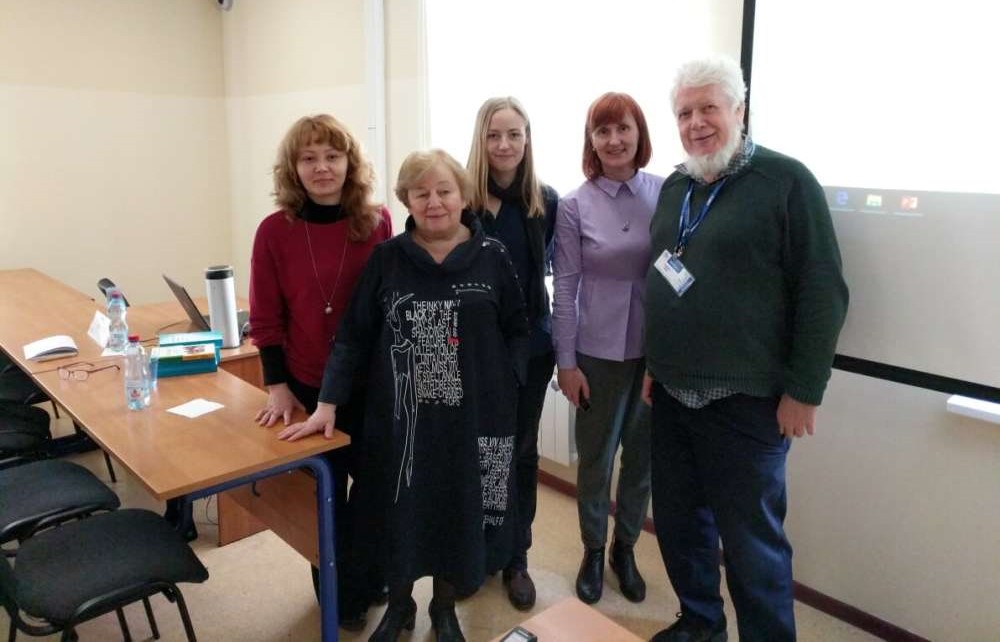
What are some of the scientific accomplishments of the Centre’s staff?
Every year, our staff publish eight to twelve articles in Q1 and Q2 international journals in the WoS and Scopus databases. Over 100 research articles of this level have been published since the laboratory was founded. The Centre’s staff have won four grants from the Russian Science Foundation (RSF), five grants from the Russian Humanitarian Science Foundation (RHSF), and four grants from the Russian Foundation for Basic Research (RFBR). Every year, we take part in the HSE April Conference—including organizing scientific sessions in our areas of research. The majority of our staff are members of the International Association for Cross Cultural Psychology (IACCP) and organize relevant scientific sessions for international congresses run by the IACCP. In 2018, at the IACCP international congress in Guelph, Canada, I presented a plenary report on models of cross-cultural relations in post-Soviet countries based on empirical data obtained from the Centre’s research.
The Centre for Sociocultural Research currently employs 24 people, half of whom are young specialists under 30 who are passionate about research and dream of a research career.
Eight of them graduated from the English-language double-degree Master’s programme in Applied Social Psychology, and another eight defended their theses at HSE University. Despite their youth, they already have some impressive achievements to their names—they published 12 articles in Q1 and Q2 journals between 2017 and 2019. Dmitry Grigoriev was also awarded the prestigious 2020 Excellence in Reviewing Award from Human Resource Management Review. Our young scholars also combine their research pursuits with teaching at the HSE Faculty of Psychology, and some of them were named Best Teacher in 2019. They also successfully manage the RSF and RFBR projects, and have completed exchange programmes at world-leading research centres at Princeton University and Lincoln University.
What areas do you see as priorities for the Centre in the next few years?
We don’t think in terms of bigger or smaller priorities—we study what we find interesting. Some topics are always on our agenda, while others come to our attention for one reason or other. More often than not, they come about when foreign colleagues invite us to conduct joint cross-cultural studies into pressing issues such as attitudes to the pandemic or digitization.
We will continue our research into basic individual values, cross-cultural relations, social capital, and economic and psychological problems. These are the core themes of many of our studies. That said, we strive for diversity. When we come across a fresh idea, or a young researcher starts exploring a new topic, we are more than willing to provide support. We hope that the Centre will continue to expand its interests and research areas. We want to be a research centre that explores a broad range of socio-psychological and socio-cultural problems, while enjoying a solid reputation and recognition from Russian and foreign colleagues alike.
Klaus Boehnke
Deputy Director, Centre for Sociocultural Research
Nadezhda Lebedeva
Director, Centre for Sociocultural Research
Alexander Tatarko
Deputy Director, Centre for Sociocultural Research
Evgeny Yasin
HSE Honorary Academic Supervisor

